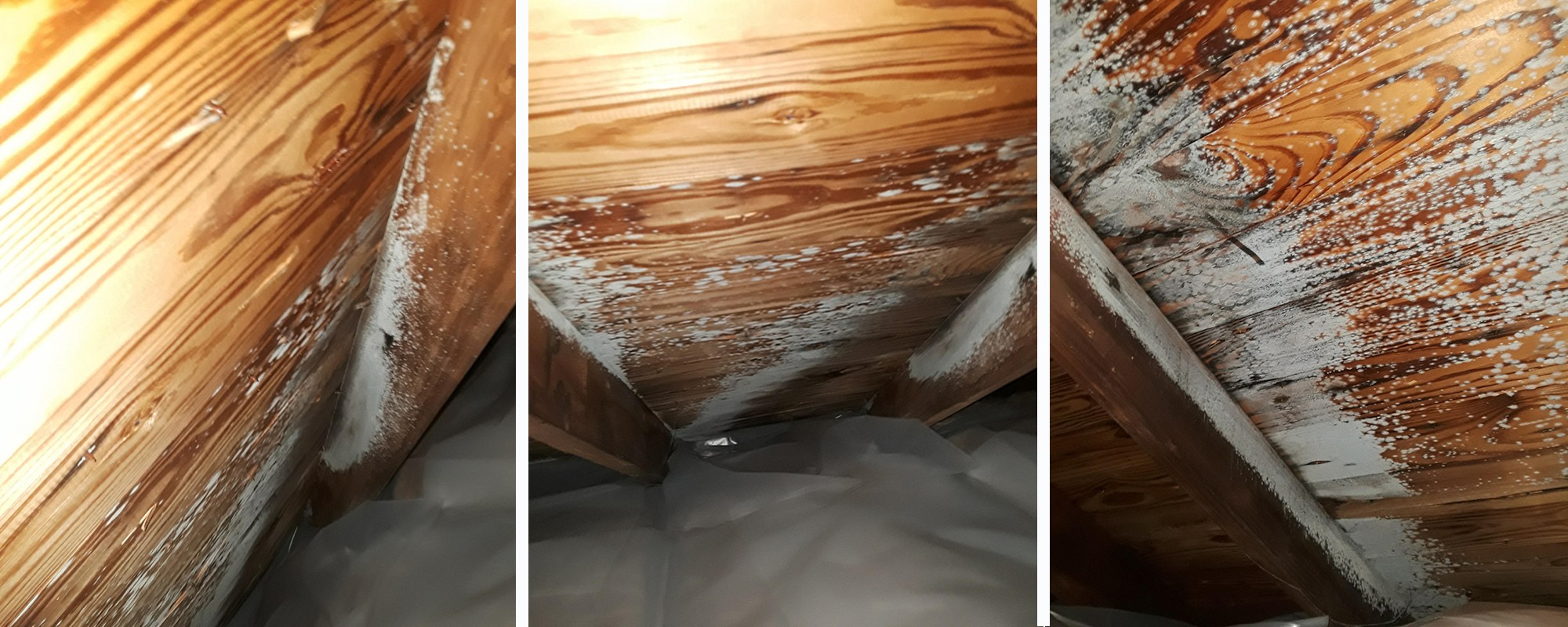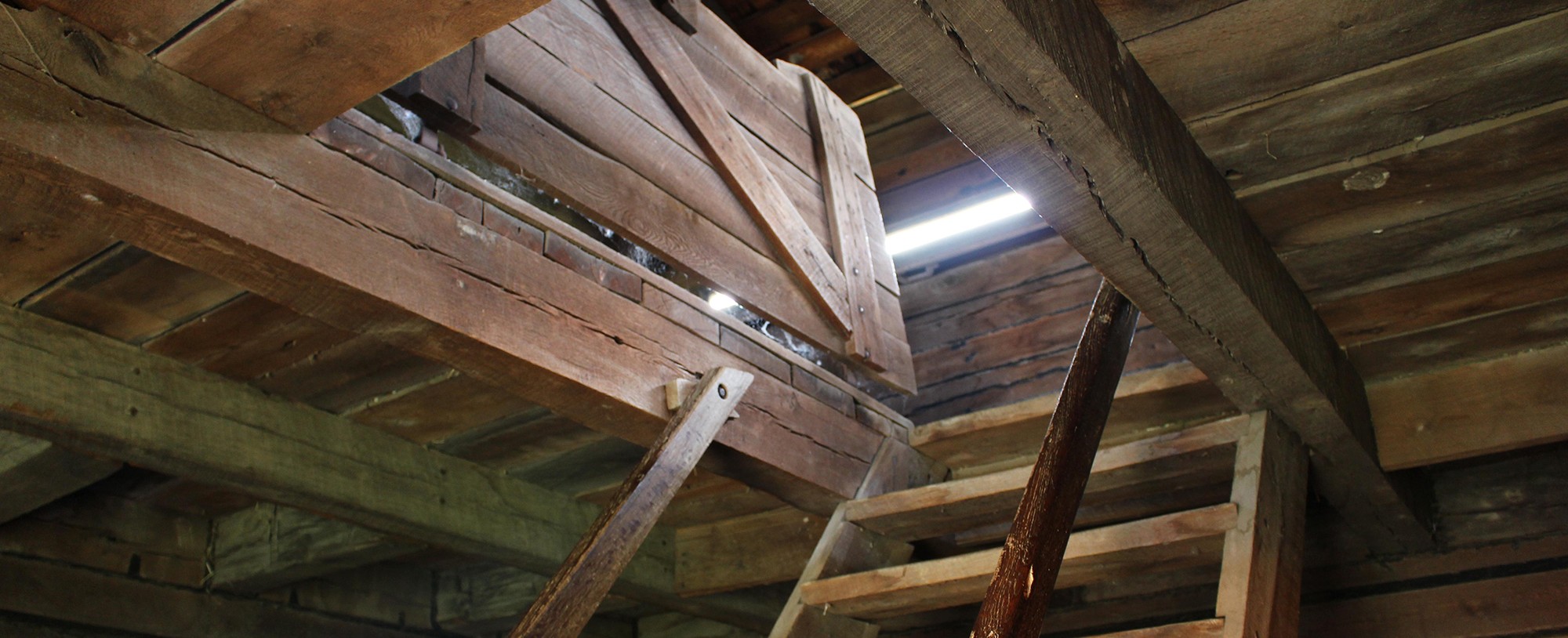
It’s so Cold, my Attic Froze Over
How has the year 2018 been thus far? COLD, to say the least. The exceptionally harsh weather conditions over the last couple of weeks has left us all wishing for summer. With dramatic shifts in weather, comes dramatic shifts in home maintenance problems. Due to recent plummeting temperatures, we have received several calls from panicked and thoroughly befuddled homeowners reporting that their attics have quite literally frozen over. Yes, attic frost is a very real phenomenon- especially in such cold climates.
There are two key contributing factors to a frozen attic:
- Elevated moisture levels in your attic
- Extremely cold temperatures
Attic frost is a sign that you have an underlying moisture problem in your attic that you may not have previously noticed. For one reason or another (i.e: poor ventilation, improper insulation, etc.), your attic space is trapping warm, moist air which is already problematic. Add in dropping temperatures, and the water vapors in the air will begin to condense onto your attic building materials. If temperatures dip low enough, this condensation will begin to freeze over.
The Dangers of A Frozen Attic in Your South Jersey Home
Depending on the original source of the moisture, frost in of itself is harmless… until it begins to thaw. When temperatures begin to rise again, your frozen attic will begin to thaw. When that happens, water will collect and saturate your porous building materials. Depending on the situation, water can leak to other areas throughout your home and leave you with moisture problems in previously dry spaces. If left unaddressed, this moisture will cause serious property damage including, but not limited to, deteriorated building materials, wet insulation and mold development.
Ultimately, if you discover a frozen attic, you need to contact a professional to assess the space. A professional will be able to determine what caused the moisture in the first place. Moisture control will be the key in preventing a frozen attic, preventing water damage and preventing attic mold in the future. More importantly, a professional will have the necessary tools and training to safely thaw out your frozen attic in a controlled environment where ice melt can be directed to designed collection areas, and the space can be effectively dried out.

Year-Round Moisture Control To Prevent Frozen Attic in New Jersey Homes
A frozen attic is a sign of underlying moisture problems. Moisture problems that NEED to be addressed in order to maintain the condition of your home. Unaddressed moisture can lead to serious property damage, potential mold development and diminished property value. We can never stress enough the importance of constant attic moisture control in your NJ home.
Regularly check for Leaks:
- If you spot signs of water intrusion from your roof or signs of damage that can lead to water intrusion, address it immediately.
- Dry leaks out IMMEDIATELY, even the the slightest residual moisture can increase your indoor moisture levels and become a threat down the line.
- Check all HVAC components and plumbing systems running through the attic for leaks or condensation.
Maintain your roof system:
- Conduct regular assessments of your roof exterior and interior. Deteriorating or missing shingles and damaged flashing are a couple of the key signs of roof damage in New Jersey.
- Make sure that all vents are free of any obstructions or damage. Clogged or damaged vents can lead to moisture buildup in your attic.
Ensure sufficient ventilation:
- Properly installed and sufficiently sized soffit vents, ridge vents and gable wall vents can promote air circulation and prevent moisture buildup in your attic.
- Make sure that all ventilation/fan systems from other areas of the home DO NOT empty into the attic.
- If any ventilation/fan systems empty into your attic, it means that warm, moist air is constantly being dumped into your attic with nowhere to go.
- All ventilation/fan systems should empty outside and away from the home.
Check for adequate & proper attic insulation:
- Damaged insulation can be an indicator of water problems
- Damaged insulation cannot do its job properly and will be ineffective in preventing moisture buildup
- It is important to properly replace any damaged insulation as soon as possible
- If your attic is not already insulated, you should consider hiring a professional to properly install insulation in the space
- Be careful not to over insulate your attic. Too much insulation can interfere with controlled ventilation and trap warm moist air
Maintain your gutters:
- Clean your gutters regularly– your gutters should be free of all debris to avoid backups.
- Overflowing gutters can lead to roof damage and serious water leaks into your attic
- During the cooler months, clogged gutters can easily freeze shut and cause excessive weight on gutter fasteners and create ice dam conditions, which can damage your roof system.
- Ice in and around your gutter can promote condensation on the underside of your roof and increase the risk for attic frost.
Place a dehumidifier:
- Attic dehumidifiers can help to keep your attic dry. If you attic is especially damp or humid, a dehumidifier can help.
- Make sure that you pick a dehumidifier that is the right size and capacity for the needs of that specific space to ensure effectiveness.
- Regular dehumidifier maintenance will help to preserve the quality and effectiveness of your unit.
Declutter:
- Attics are often used for storage. Cluttered spaces limit air flow and trap warm moist air (especially in already humid environments).
- Take some time to regularly organize and purge some of your stored items. This will open up your attic, help to optimize air circulation and minimize moisture buildup.
Frozen Attic & Underlying Moisture Problems
Attic moisture problems are complex to solve and it can be difficult to isolate the source. Moisture problems will vary throughout the year as the seasons change, especially with cold winters and hot humid summers. In general, problems will occur whenever there is an imbalance between the moisture input to your home and the ventilation rate of your home. Elevate moisture in your attic will lead to extensive property damage, mold development and various other problems. If you discover that an unaddressed moisture problem in your attic has left you with an attic mold problem, you should contact an attic mold removal professional in South Jersey to assess and address the issue.


